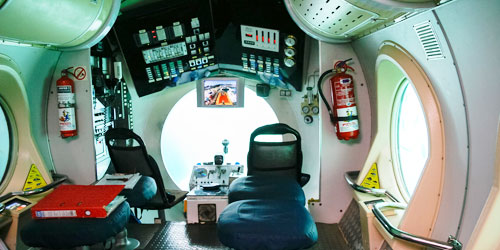
The Titan Sub tragedy has led at least one former OceanGate employee to report that the Titan Sub was the ultimate example of a lemon. Former OceanGate Pilot Said the Titan Sub Was a ‘Lemon’: Report (insider.com). While the Titan Sub is obviously not an automobile subject to lemon laws, it does serve as a tragic example that all lemons can be dangerous, whether they be submersibles, boats, automobiles, pickup trucks, RV’s or motorcycles.
Submarines have long been hailed as marvels of engineering, allowing humans to explore the depths of the ocean and carry out critical military operations. However, not all submarines are created equal, and sometimes, even the most promising projects fall short of expectations. One such example is the ill-fated Titan Sub, a vessel that has gained notoriety as a colossal lemon in the world of submarines. In this blog post, we will delve into the reasons why the Titan Sub failed to live up to its promises and how its shortcomings highlight the challenges of engineering complex underwater vehicles.
One of the primary reasons behind the Titan Sub’s failure was its inherent design flaws. From its inception, the submarine suffered from a range of issues that significantly impacted its performance. For starters, the propulsion system was underpowered, causing sluggish maneuverability and reduced speed. The lackluster design of the hull compromised its structural integrity, making it prone to leaks and cracks. These design flaws not only undermined the safety of the crew but also limited the submarine’s operational capabilities.
A submarine is expected to function reliably in demanding and harsh conditions, often far away from shore and assistance. Unfortunately, the Titan Sub fell short in this regard as well. Numerous reports emerged highlighting a myriad of reliability issues, including frequent breakdowns, mechanical failures, and system malfunctions. These problems not only disrupted critical missions but also put the lives of crew members at risk. The lack of dependability made the Titan Sub an unreliable platform for any serious submarine operation.
The performance metrics of a submarine play a crucial role in determining its effectiveness. In the case of the Titan Sub, it failed to meet the industry standards in several key areas. Its limited range severely restricted its ability to conduct extended missions or operate in distant waters. Additionally, the submarine’s acoustic signature was poorly managed, making it vulnerable to detection by enemy forces. These shortcomings rendered the Titan Sub ineffective for both military applications and scientific exploration.
The development and production of the Titan Sub were marred by significant cost overruns and project delays. The initial estimates for the submarine’s budget and timeline proved to be woefully inaccurate. As a result, the project consumed far more resources and time than anticipated, leading to financial strain and public scrutiny. The continuous delays further compounded the problem, eroding confidence in the submarine’s capabilities and raising questions about the project’s management and oversight.
The Titan Sub stands as a sobering example of how dangerous lemons can be. While the Titan Sub is an extreme example, if you own or operate a lemon vehicle the dangers to you, your passengers, and the general public can be just as harsh if you happen to be driving a lemon. Fortunately California’s lemon law exists to promptly remove defective vehicles from the roadways with an aim towards improving public safety. If you think your car, pickup truck, motorcycle, RV or boat is a lemon, please contact our office for a free California lemon law case evaluation.



Write a comment: